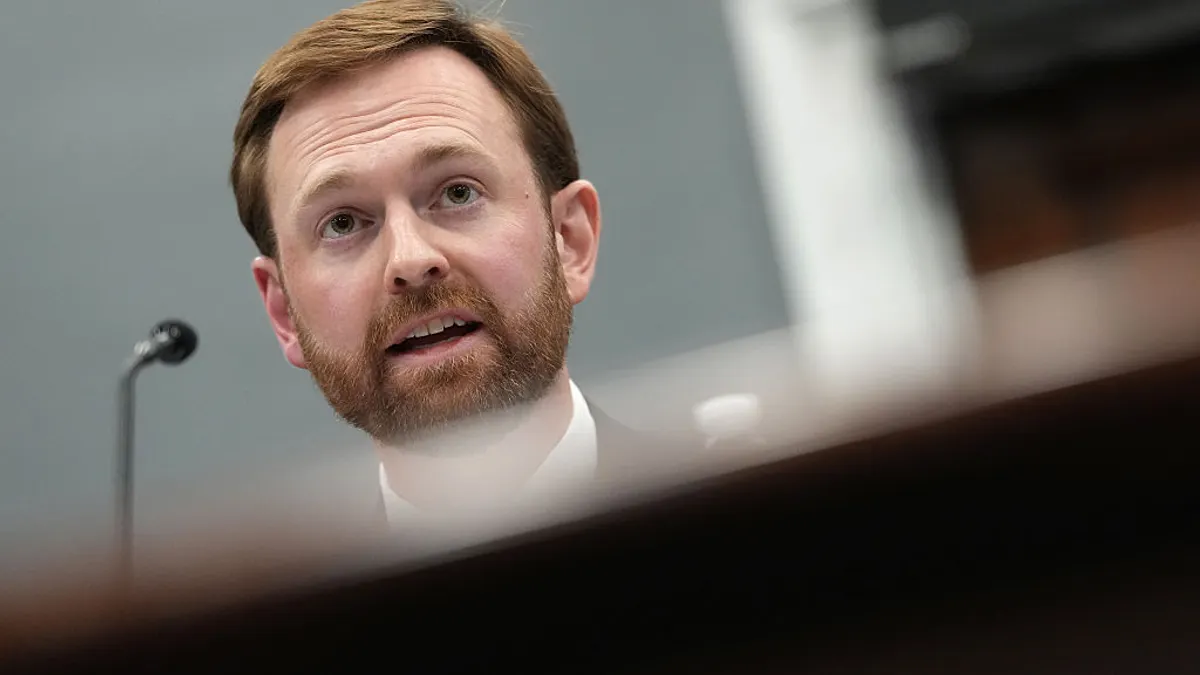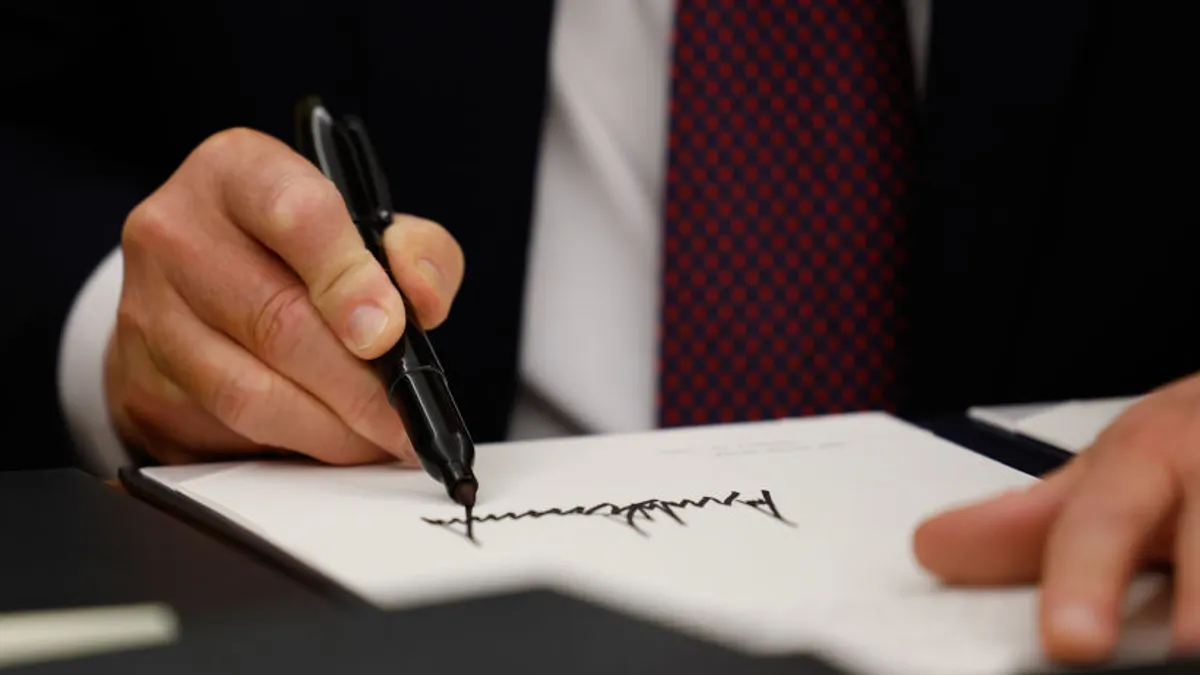Citi has abandoned a 7-year-old policy restricting firearms sales by its retail clients, the bank said in a statement on its website Tuesday.
The move could be read as a bow to increasing pressure from conservative circles that have accused big U.S. banks of failing to serve clients whose political leanings fall right of center.
“Citi has always been fully committed to treating all current and potential clients fairly,” Ed Skyler, the bank’s head of enterprise services and public affairs, said Tuesday. “At the same time, we appreciate the concerns that are being raised regarding ‘fair access’ to banking services, and we are following regulatory developments, recent Executive Orders and federal legislation that impact this area.”
Broadly, the bank said it would update its employee code of conduct and customer-facing financial access policy “to clearly state that we do not discriminate on the basis of political affiliation in the same way we are clear that we do not discriminate on the basis of other traits such as race and religion.”
“This will codify what we’ve long practiced,” Skyler said in Tuesday’s statement.
But Citi specifically noted it will “no longer have a specific policy as it relates to firearms.”
The bank in 2018 enacted a policy prohibiting the sale of firearms to customers who had not passed a background check or were younger than 21 (unless they had military training). The policy – which also banned the sale of bump stocks and high-capacity magazines to clients who offered credit cards backed by Citi, borrowed money or raised capital through the company – came in response to the Parkland, Florida, school shooting that left 17 people dead.
“As a society, we all know that something needs to change,” Skyler said at that time. “And as a company, we feel we must do our part.”
Citi is not the first big U.S. bank to roll back its firearms restrictions. Bank of America in December 2023 tweaked the language of its environmental and social risk policy. While financing the manufacturing of certain firearms had been listed as a “business restriction” in a 2022 policy, it was downgraded to a “business escalation” the following year. Clients and transactions in that sector “must go through an enhanced due diligence process and be escalated to the senior-most risk review body of the applicable line of business for decisioning,” Bank of America said in its December 2023 update.
But where BofA kept its changes contained to fine print, Citi arguably took a bolder, more transparent stance Tuesday through its public statement.
Citi’s 2018 policy “was intended to promote the adoption of best sales practices as prudent risk management,” the bank said Tuesday. “Many retailers have been following these best practices, and we hope communities and lawmakers will continue to seek out ways to prevent the tragic consequences of gun violence.”
John Commerford, executive director of the National Rifle Association’s Institute for Legislative Action, called Citi’s policy change “a good first step” but sought more, prodding the Senate to pass a bill, reintroduced in February, that would penalize banks and credit unions with more than $10 billion of assets "if they refuse to do business with any legally compliant, credit-worthy person," according to a press release from the office of Sen. Kevin Cramer, R-ND.
That bill would also prevent payment card networks from discriminating against qualified customers over political or reputational considerations. Failure to comply could spur a fine of up to $10,000 per violation, according to the legislation, which has a companion bill in the House.
Gun violence prevention advocates expressed disappointment at Citi’s policy change.
"The actions Citi announced in 2018 were common-sense steps to promote public safety," Nick Suplina, senior vice president for law and policy at Everytown for Gun Safety, said in a statement. "With firearms as the leading cause of death for children and teens, the logic of 2018 is just as relevant today."
However, the political climate has undoubtedly shifted. Within a week of taking office, President Donald Trump leveled a scathing – and very public – accusation at Bank of America CEO Brian Moynihan.
“You’ve done a fantastic job, but I hope you start opening your bank to conservatives … because what you’re doing is wrong,” Trump said in a meandering response to a question Moynihan asked about the economic impact of executive orders.
Moynihan later refuted Trump’s claim, saying Bank of America “bank[s] everybody.” But the CEO indicated he interpreted the president’s barb as a question “about over-regulation.”
Trump’s executive orders, though, have already spurred policy change. After the administration signaled a wide-scale de-emphasis on diversity, equity and inclusion, large banks including Bank of America and Citi, scrubbed their legal statements of particular keywords. Bank of America, for example, swapped words like “diversity” for “talent” and “equity” for “opportunity.”
Citi, meanwhile, rebranded its “diversity, equity and inclusion and talent management” team to simply “talent management and engagement,” and the bank dropped the “aspirational representation goals” it had set for its workforce – except where required by local laws – citing pressure from the White House.
Citi may see Tuesday’s policy shift as an effort to further keep in check with the prevailing political winds.
“We took an objective look at our policies and practices with the intent of striking the right balance between our commitment to fair and unbiased access to our products while continuing to manage all risks to the bank appropriately,” Skyler said in Tuesday’s statement.






















